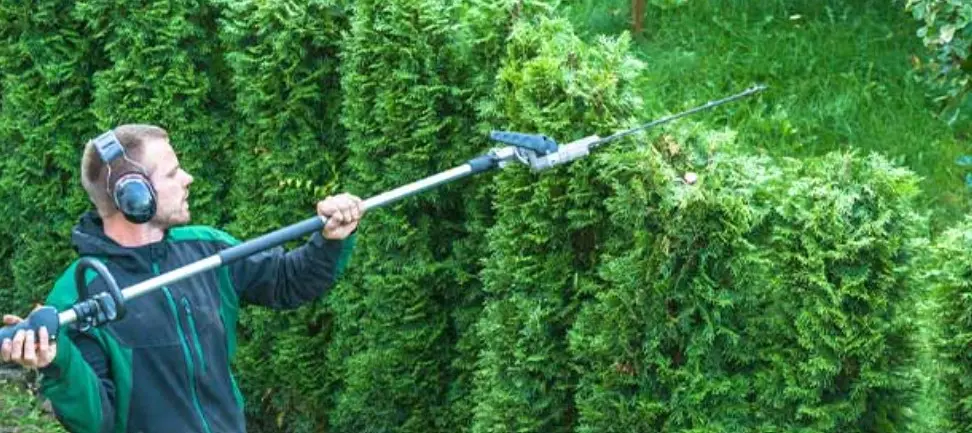Working under the open sky might sound refreshing, but for landscapers and outdoor laborers, it often means braving unpredictable weather, operating heavy machinery, and pushing the limits of physical endurance. With such a physically demanding profession, the risk of injury isn’t just a possibility – it’s a reality many face every day. Knowing what to do when an injury happens is vital, and that’s where understanding workers’ compensation and getting help from a qualified expert in job-related injury claim becomes a game-changer.
The Hidden Hazards of Landscaping Jobs
While the manicured lawns and beautifully crafted gardens reflect art and care, the path to creating them is filled with potential hazards. Landscapers often work long hours with limited breaks, especially during peak seasons, and the physical toll can be immense.
In fact, landscaping is consistently ranked among the top ten most dangerous professions in the United States. From exposure to sharp tools and power equipment to heatstroke, back injuries, and even encounters with insects or wildlife, the risks are wide-ranging and often underestimated.
Common Outdoor Work Injuries
It’s not just about cuts and bruises. Here’s a look at some of the most common injuries outdoor workers may face. These can be serious enough to disrupt your career – or your life.
1. Musculoskeletal Strains
The constant lifting, bending, twisting, and pulling can wreak havoc on muscles and joints. Lower back injuries are especially common, and without proper rest or treatment, they can lead to chronic pain or disability.
2. Equipment-Related Accidents
Whether it’s a lawnmower, chainsaw, or stump grinder, the tools of the trade can be dangerous. Improper use or equipment malfunction can cause lacerations, amputations, or crush injuries.
3. Slips, Trips, and Falls
Uneven terrain, wet grass, and cluttered work areas contribute to many on-the-job falls. These incidents might result in sprained ankles, broken bones, or even head trauma.
4. Exposure to Extreme Weather
Landscapers often work through scorching heat or sudden storms. Heat exhaustion and sunstroke are common risks, particularly during the summer months.
5. Toxic Exposure
Fertilizers, pesticides, and herbicides are part of the job, but without proper protective gear, workers can suffer respiratory issues, skin conditions, or chemical burns.
Workers’ Compensation: Your Safety Net
Thankfully, most states require employers to carry workers’ compensation insurance. This safety net is designed to cover medical expenses, lost wages, and rehabilitation costs for injured workers, ensuring that they don’t bear the financial burden of work-related accidents.
Here’s where it gets even more important: while the system is there to protect you, navigating it can be anything but simple. That’s where workers’ compensation lawyers come in.
Why You Should Talk to a Workers’ Compensation Lawyer
Let’s be honest – filing a workers’ comp claim can feel like trying to decode a secret language. There are deadlines, documentation requirements, and sometimes pushback from employers or insurers. Having a workers’ compensation lawyer on your side can make all the difference.
An experienced attorney can:
- Help you gather the necessary medical evidence
- File your claim on time and correctly
- Represent you if your claim is denied
- Negotiate fair settlements that reflect the true cost of your injury
They don’t just handle paperwork – they fight for your peace of mind and your future. If you’re thinking about taking the next step, check the map to find an office that fits your needs – sometimes all it takes is one click to start your path toward justice:
Real People, Real Results
Many outdoor workers hesitate to seek legal help, thinking it might complicate things. But the truth is, lawyers who specialize in this field are often the reason injured workers get the compensation they truly deserve. And most work on a contingency fee basis, meaning they only get paid if you do.
Fun fact: The first U.S. workers’ compensation law was passed in Wisconsin in 1911, and today, every state has some form of protection in place for injured employees. That’s over 100 years of progress – and it continues evolving.
What to Do If You’re Injured
If you’re injured while landscaping or doing outdoor labor, don’t wait and hope it gets better. Here’s your basic roadmap:
- Report the injury immediately to your employer.
- Seek medical attention, even if it seems minor.
- Document everything – photos, witness statements, and medical reports.
- Consult a workers’ compensation lawyer to ensure you’re not missing benefits or getting shortchanged.
You Deserve Protection and Peace of Mind
Outdoor work is physically taxing and mentally tough. Landscapers and outdoor workers bring beauty and function to our everyday environments, and they deserve full protection when injuries strike. Workers’ compensation exists to help, but getting what you deserve might take an expert’s hand.
Don’t go it alone. If you or someone you know works in landscaping and has suffered an injury, a seasoned workers’ compensation lawyer can be your best ally – providing the clarity, confidence, and support you need to focus on what matters most: healing.
Also read-Live Beautifully Transform Your Home With Interior Design That Matches Your Life
